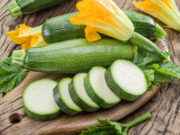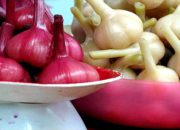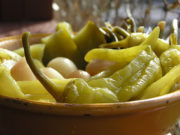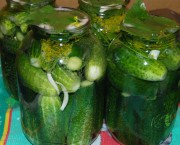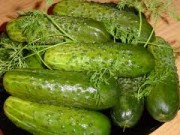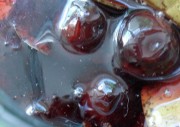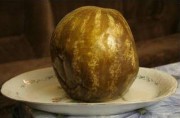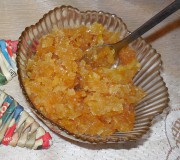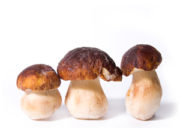A simple recipe for making pickled zucchini for the winter
Zucchini season is long, but it is usually very difficult to keep track of them. They ripen in a matter of days, and can easily become overripe if they are not harvested on time. Such zucchini become “woody” and are not suitable for frying or salads. But overripe zucchini is also suitable for pickling. During the fermentation process, all this woodiness disappears, and pickled zucchini tastes exactly like pickled cucumbers.
Of course, you shouldn’t use very old zucchini. Their overripe pulp will look more like a sponge. It may be tasty, but it doesn't look appetizing at all.
Zucchini can be fermented either alone or together with other vegetables. Most often they are fermented together with cucumbers, apples, or squash, and the same recipe is used as for cucumber starters.
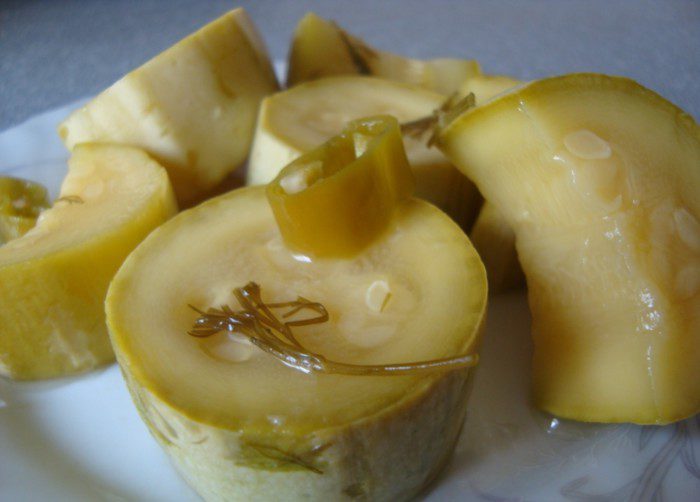
Wash the zucchini, cut off the “tails” from both ends with a sharp knife, and cut them into “wheels”. Don’t make it too small, the thickness of the wheels should be 2-3 centimeters. You can not cut young zucchini at all, but leave it as is.
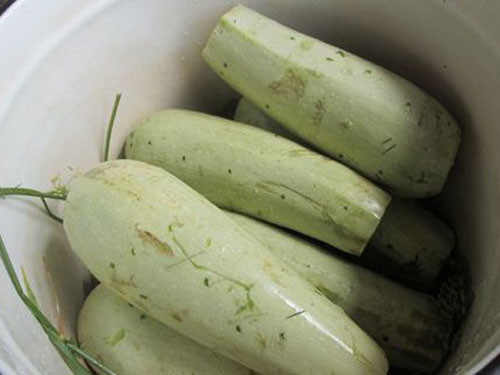
At the bottom of the fermentation container, place horseradish leaves, dill branches, garlic, and all the spices that you use to ferment cucumbers. You can add 1-2 hot chili peppers if you like spicy dishes.
Prepare the brine:
- 1 liter of water;
- 60 grams of salt.
Boil water and dissolve salt in it. If desired, you can add bay leaves and peppercorns to the boiling brine.These spices need boiling water to open up and there is no point in simply throwing them into a cold brine.
When the brine has cooled, pour it over the zucchini so that the brine covers them by at least 5 cm.
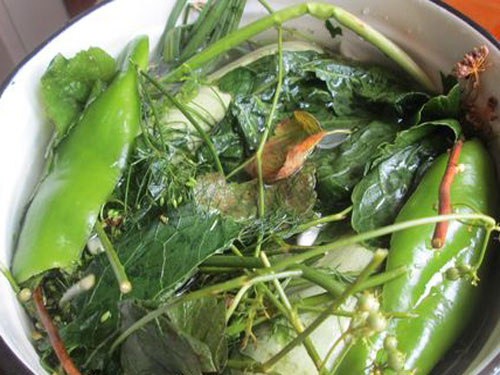
Cover the container with the zucchini with gauze and leave for 7 days at room temperature. During the active fermentation phase, the brine becomes cloudy and air bubbles appear on the surface. Zucchini is quite dense, and they need a little more time than cucumbers or tomatoes, but they shouldn’t be over-acidified.
7 days after the start of fermentation, you can take the zucchini to the cellar or other cool place for long-term storage.

Pickled zucchini stores well, and is an excellent “lifesaver” if there are no cucumbers. Pickled zucchini will successfully replace them, and if these zucchini are small, then no one will notice the difference at all. You can try pickled zucchini after 2-3 weeks. Perhaps you'd like to pickle a couple more jars?
Watch the video on how to prepare pickled zucchini for the winter and for every day:

